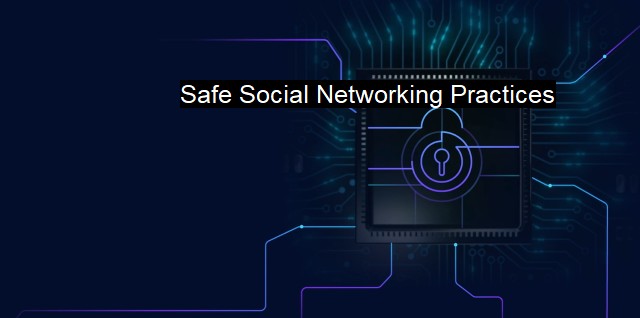What are Safe Social Networking Practices?
Staying Safe Online: Best Social Networking Practices for Cybersecurity and Antivirus Protection
Safe social networking practices refer to the procedures and guidelines that individuals or businesses follow to protect their privacy and maintain safety while using social networking platforms. This concept is highly important as private, financial, and business information can be compromised and misused if not guarded appropriately. practices that compromise systems can lead to unwanted exposure to viruses and malware, making prominent antivirus solutions vital elements to consider.Social media platforms have become the virtual ‘agora’ of the 21st century. They are places where individuals, groups, and businesses interact, express ideas, and share information. they are also teeming with threats like fake profiles, privacy breaches, phishing attacks, malware, and data theft. Ensuring safe social networking therefore becomes imperative, especially considering the increase in cybercrimes today.
One cornerstone of safe social networking is privacy. Users should adjust their privacy settings to control who accesses and views their information. It is also advisable not to share sensitive data like passwords and financial details on these platforms. While many platforms advocate for ‘openness,’ sharing certain data can infrate someone’s privacy and security. Using strong, unique passwords and enabling two-factor authentication where available can add an extra layer of safety.
Sharpening one’s digital literacy skills is another important practice to adopt. In today's digital space, everyone is likely to come across dubious links, phishing scams or spear-phishing attacks, messages soliciting sensitive information, or click bait that can lead to malicious sites. Users should train their eyes to spot these anomalies and refrain from clicking links that seem suspicious. Recognizing fake profiles can also go a long way to avoid falling prey to scamming and cyberbullying.
Next, the significance of a strong antivirus cannot be underplayed. In the cybersecurity landscape, having robust antivirus software installed aids significantly in identifying and eliminating threats. Trusted antivirus measures are critical in filtering out harmful malware, ransomware or phishing attempts from emails or corrupted files that may come through social media.
Just as important, it’s essential to update software, apps, and systems regularly. As hackers develop more sophisticated methods, software companies are also advancing their methods of warding them off. Thus, keeping up-to-date with system and application patches helps to enhance security.
Businesses and brands using social media for marketing and communication purposes must take a robust approach to safeguard their reputation and sensitive data. First, they should educate their employees about responsible social media use and cybersecurity. A detailed social media policy should be in place that sets out what is acceptable behavior when using company accounts.
Businesses should closely monitor their social media channels and have a crisis response plan in case of a security breach. Employing cybersecurity professionals to monitor systems and detect any anomalies before they escalate is worth the cost too.
Lastly, the human element also plays a significant role. Users need to adopt a cautious cyber ethos while interacting with unknown individuals or profiles on social media platforms. Many risks can be avoided through responsible social networking behavior.
Safe social networking practices encompass user education on privacy settings, cautious behavioral traits, remaining wary of suspicious profiles or links, and routine software updating practice. Also vital are robust antivirus solutions that ward off malware and other potential cybersecurity threats. When combined all these elements contribute to a safe social networking environment that plays an integral part in battling cybercrime.

Safe Social Networking Practices FAQs
What can I do to protect my personal information on social networking sites?
You can protect your information by ensuring that your profile is set to private, being mindful of the information you share, using strong and unique passwords, and updating your privacy settings regularly.What are some common cyber threats on social media platforms?
Common cyber threats on social media platforms include phishing attacks, malware, social engineering scams, and online identity theft.How can I avoid falling for a social engineering scam on social media?
You can avoid falling for social engineering scams by being cautious of unsolicited messages, not clicking on suspicious links, and never sharing your personal or sensitive information online.What are some safe practices when using social media on public Wi-Fi networks?
When using social media on public Wi-Fi networks, it's important to use a VPN, avoid logging into sensitive accounts, and make sure that your device's security software is up-to-date.| | A | | | B | | | C | | | D | | | E | | | F | | | G | | | H | | | I | | | J | | | K | | | L | | | M | |
| | N | | | O | | | P | | | Q | | | R | | | S | | | T | | | U | | | V | | | W | | | X | | | Y | | | Z | |
| | 1 | | | 2 | | | 3 | | | 4 | | | 7 | | | 8 | | |||||||